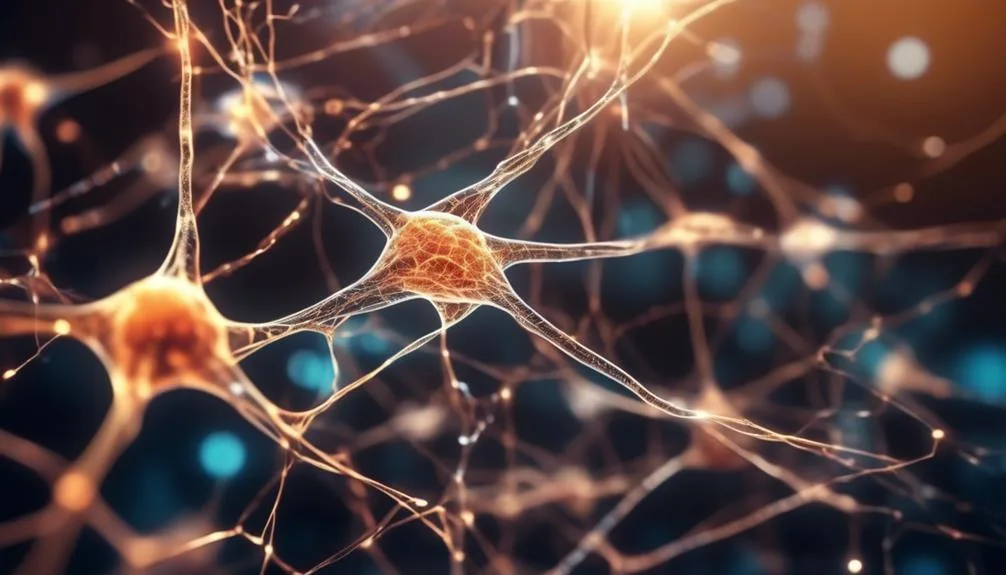Have you ever stopped to wonder how the intricate process of human development unfolds? The secrets that lie within this fascinating journey hold a wealth of knowledge waiting to be discovered.
From the complexities of our biology to the impact of our environment, every step along the way shapes who we become.
In this exploration of developmental psychology, we will uncover the hidden depths of this captivating field, shedding light on the mysteries that influence our growth and transformation.
Prepare to be intrigued as we unravel the enigmatic intricacies of human development and uncover the profound insights that await us.
Key Takeaways
- Developmental psychology studies physical, mental, and behavioral changes throughout life.
- The field has been influenced by various theories and models in psychology, including attachment theory, Piaget's stage theory, Freud's psychosexual development theory, Erikson's psychosocial theory, and Vygotsky's sociocultural theory.
- Case studies and research findings in developmental psychology have provided insights into language acquisition, moral development, identity formation, the impact of early experiences, parenting styles, and peer relationships on development.
- Positive developmental psychology incorporates positive psychology paradigms and promotes resilience, optimism, and flourishing by nurturing positive emotions, character strengths, and meaningful relationships.
The Importance of Developmental Psychology
Developmental psychology plays a vital role in understanding and explaining the complex processes of human growth and development throughout the lifespan. This subtopic will focus on two important aspects: the influence of developmental psychology on parenting and its impact on mental health.
Research has shown that understanding the principles of developmental psychology can greatly influence parenting practices. Parents who are aware of their child's developmental needs, abilities, and milestones can provide appropriate support and guidance, leading to healthier parent-child relationships.
Additionally, developmental psychology sheds light on the factors that contribute to mental health issues. It helps identify risk factors, protective factors, and effective interventions for promoting mental well-being from infancy through adulthood.
Theories and Models in Human Development

Understanding the principles and theories of human development is essential for comprehending the intricate processes of growth and change throughout the lifespan. In the field of developmental psychology, various theories and models have emerged to explain the complex nature of human development.
Two key areas of focus in these theories and models are the nature vs. nurture debate and the social and cultural influences on development.
The nature vs. nurture debate:
This debate centers around the extent to which genetics (nature) versus environmental factors (nurture) shape human development. Some theories emphasize the importance of biological factors, such as genes and brain development, while others highlight the role of environmental experiences and social interactions.
Social and cultural influences:
These influences recognize the impact of society, culture, and social interactions on an individual's development. Theories and models in human development emphasize the role of cultural norms, socialization, and cultural values in shaping an individual's beliefs, behaviors, and identity.
Case Studies and Research Findings

Numerous case studies and research findings have contributed valuable insights into the intricate processes of human development across various domains.
Language acquisition, a fundamental aspect of human development, has been extensively studied. Research has shown that children have a remarkable capacity to acquire language, with early interactions and exposure playing a crucial role.
Studies have also explored the development of moral reasoning and decision-making. Researchers have examined how individuals develop a sense of right and wrong, and how moral judgments may change across different stages of development.
These case studies and research findings provide important knowledge about the factors that shape human development, helping us understand the complex interplay between biology, environment, and social influences in shaping our language abilities and moral development.
Positive Developmental Psychology

Positive developmental psychology integrates the principles of positive psychology to enhance children's development and well-being. By focusing on strengths, values, and well-being, positive developmental psychology promotes resilience, optimism, and flourishing in children. It emphasizes the importance of nurturing positive emotions, character strengths, and meaningful relationships.
Positive developmental psychology extends beyond childhood and adolescence to include adulthood. It recognizes the importance of promoting positive development and well-being throughout the lifespan.
Culture plays a significant role in shaping positive development. Positive developmental psychology acknowledges the influence of cultural values, beliefs, and practices on children's well-being and development.
Applications in Education

Incorporating the principles of positive developmental psychology into education can have a profound impact on children's psychological, emotional, and intellectual growth and well-being. One important aspect is the use of a developmentally appropriate curriculum. This means tailoring educational content, teaching methods, and activities to match the cognitive, social, and emotional abilities of the students at each stage of their development. By doing so, educators can create a learning environment that's engaging, meaningful, and challenging for children.
Another key application is promoting social emotional development. This involves teaching students skills such as self-awareness, self-regulation, empathy, and effective communication. Research shows that social emotional competence is crucial for academic success, positive relationships, and overall well-being. It can be fostered through various strategies, such as implementing social emotional learning programs, creating a supportive classroom climate, and providing opportunities for cooperative learning and collaboration.
Frequently Asked Questions
How Does Developmental Psychology Impact Physical, Mental, and Behavioral Changes Throughout Life?
Developmental psychology impacts physical, mental, and behavioral changes throughout life. Early childhood experiences have a significant impact on development, while genetics play a role in shaping human development.
What Are Some Key Theories and Models in Developmental Psychology That Have Influenced the Field?
Key theories and models in developmental psychology, such as Bowlby's attachment theory, Piaget's stage theory, Freud's psychosexual development theory, Erikson's psychosocial theory, and Vygotsky's sociocultural theory, have greatly influenced the field and shaped our understanding of human development.
Can You Provide Examples of Case Studies and Research Findings in Developmental Psychology That Have Provided Insights Into Human Development?
Case studies in developmental psychology and research findings in human development have provided valuable insights. Examples include studies on language acquisition, moral development, and the impact of parenting styles on development.
How Does Positive Developmental Psychology Incorporate Positive Psychology Paradigms Into the Field?
Positive developmental psychology incorporates positive psychology paradigms into the field by focusing on strengths, values, and well-being. It promotes resilience, optimism, and flourishing, emphasizing the importance of nurturing positive emotions, character strengths, and meaningful relationships in human development.
How Does Developmental Psychology Apply to Education and How Can Teachers Respond to the Principles of Developmental Psychology in the Classroom Setting?
Teachers can apply developmental psychology in the classroom by considering students' characteristics at their stage of development. They can respond to principles by fostering creativity, promoting emotional learning, and encouraging self-regulatory skills.
Conclusion
As you journey through the captivating world of developmental psychology, you have unlocked the secrets of human development.
Like a diver exploring the depths of the ocean, you have delved into influential theories, fascinating case studies, and research findings that shape who we become.
With each discovery, you have gained a deeper understanding of the profound mysteries that guide our growth.
Now equipped with this knowledge, you're prepared to nurture resilience, optimism, and flourishing in yourself and others.
Embark on this transformative path and unlock the potential within.

